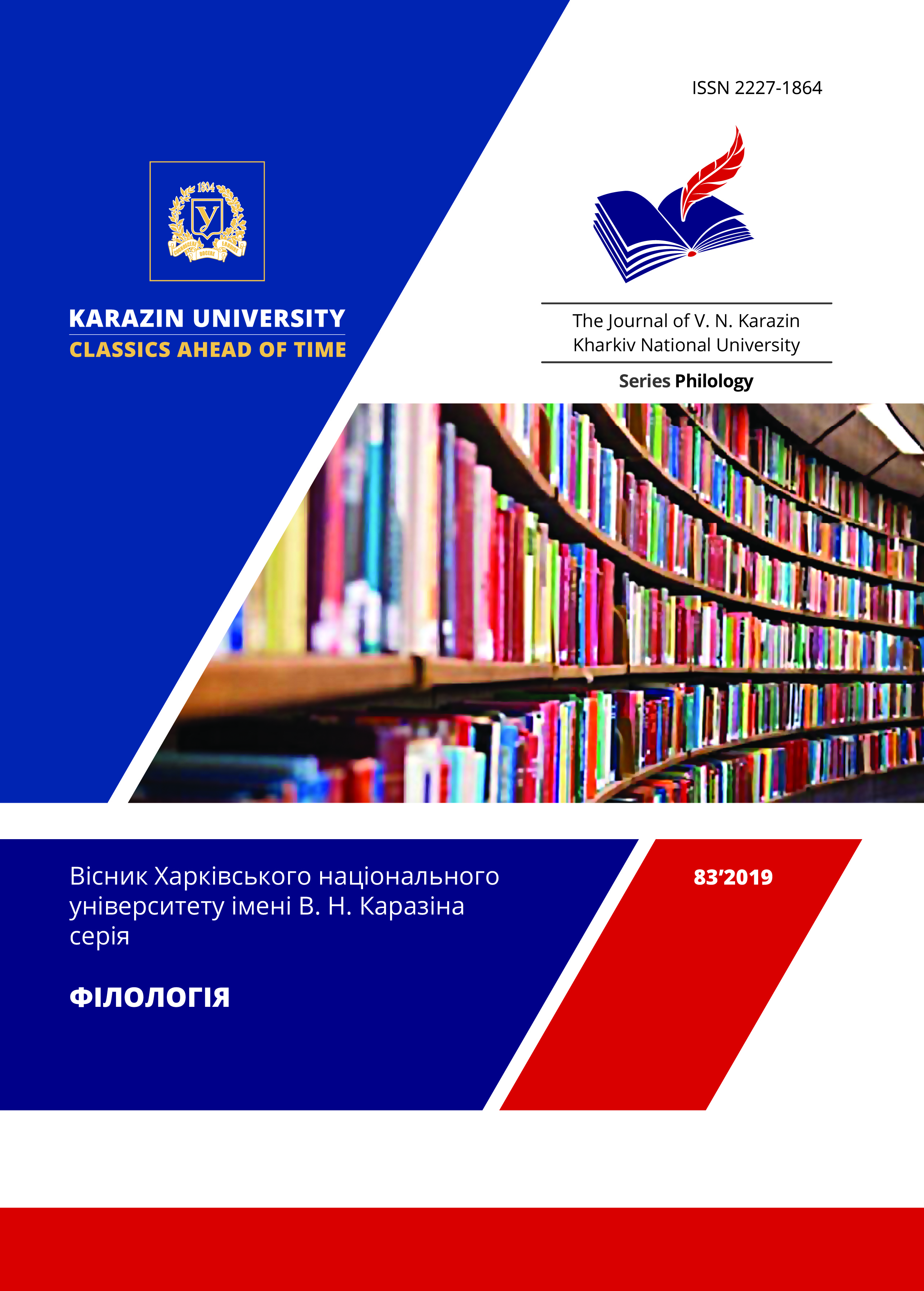Representation of the concept TOTALITARIANISM in George Orwell’s novel “1984”
Abstract
The article studies linguistic representation of the concept TOTALITARIANISM in George Orwell’s novel “1984”. This concept is the key one in the novel since the description of the totalitarian regime specificity and operation can be considered the message the author intends to convey in the dystopia. The author shows how totalitarianism works, which mechanisms put it into action and help to maintain the control over citizens who have to exist in the country where tyranny reigns. The conceptual analysis of the novel’s key concept reveals the language means used by the writer to reflect the totalitarian regime to the fullest. Due to the fact that the totalitarian government never openly admits that they want total control, Orwell also represents the concept TOTALITARIANISM through other concepts and their verbalization, viz. the concepts POWER, FEAR, PROPAGANDA, and SURVEILLANCE. They are associated with the features typical of the society ruled by totalitarianism, i.e. all-pervading power (the concept POWER), citizens’ constant fear of being punished by the Party (the concept FEAR), unlimited day-and-night control and ideology testing (the concept SURVEILLANCE), imposition of the only “correct” idea and denial of any other views (the concept PROPAGANDA). All these subconcepts are represented through their direct nomination as well as their derivational paradigm and collocations with words which activate the corresponding concept. Therefore, the comprehensive study of the novel and clear understanding of its messages made possible through the conceptual analysis can be viewed as a chance to see a warning for both contemporary and future generations.
Downloads
References
Kartel, О. N. (2017). «Novoyaz» i neologizmy v romanye “1984” Dz. Oruella [“Newspeak” and neologisms in G. Orwell’s novel “1984”]. Idei. Poiski. Reshenia [Ideas. Searches. Solutions]. Proceedings of the 10th International Scientific and Practical Conference (Minsk, November 23, 2016). Minsk : BGU, vol. 5, pp. 49–55.
Sosnina, Т. V. (2012). Sposoby vidtvorennia kvazirealii u perekladi romanu Dz. Oruela “1984” [Means of quasi-realias reproduction in the translation of G. Orwell’s novel “1984”]. Naukovi pratsi Kamianets-Podilskogo natsionalnogo universitetu imeni Ivana Ogienka. Filologichni nauky [Scientific Works of Kamianets-Podіlskyi National Ivan Ohiienko University. Philological Studies]. Kamianets-Podіlskyi, vol. 30, pp. 308–312.
Cambridge Dictionary. [Electronic Dictionary] Available at: https://dictionary.cambridge.org/ru/
Lexico / powered by Oxford. [Electronic Dictionary] Available at: https://en.oxforddictionaries.com.
McCrum, R. (May 10, 2009). The Masterpiece That Killed George Orwell. The Guardian. Available at: https://www.theguardian.com/books/2009/may/10/1984-george-orwell.
Menand, L. (Jan.19, 2003). Honest, Decent, Wrong. The New Yorker. Available at: https://www.newyorker.com/magazine/2003/01/27/honest-decent-wrong.
Merriam-Webster. [Electronic Dictionary] Available at: https://www.merriam-webster.com.
Mohomed, C. (2011). The Abolition of the Past: History in George Orwell’s “1984”. IPEDR, vol. 17, pp. 71–76.
Orwell, G. (n.d.). 1984. Planet eBook. 393 p. Available at: https://www.planetebook.com/free-ebooks/1984.pdf.
Roget, Р. М. (1964). Thesaurus of English Words and Phrases. L. : Penguin Books, 575 p.
Sessions, L. A. (1991). Teacher’s Guide to the Signet Classic Edition of George Orwell’s “1984”. New York: Penguin, 18 p.
Stadnicka, M. (2019). Possible Worlds, Impossible Worlds and Mental Spaces in George Orwell’s “Nineteen Eighty-Four”. Academia. Available at: https://www.academia.edu/38555788/Possible_Worlds_Impossible_Worlds_and_Mental_Spaces_in_George_Orwells_Nineteen_Eighty-Four.
Wengraf, L. (Nov.-Dec. 2003). The Orwell We Never Knew. International Socialist Review, № 32. Available at: http://www.isreview.org/issues/32/orwell.shtml.
Yeo, M. (2010). Propaganda and Surveillance in George Orwell’s “Nineteen Eighty-Four”: Two Sides of the Same Coin. Global Media Journal, vol. 3, № 2, pp. 49–66.




